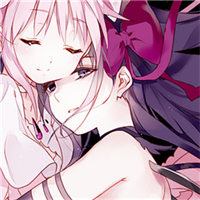英式英语和美式英语的区别 英文
30个回答

总体上来说,美式和英式的主要区别如下可以概括:
1. 美语与英语在单词拼法上的差异
美语与英语在单词拼法上的差异主要有两种:一种是单词发生变化使得个别字母不相同,另一种是美语单词较为简化。前者如enquire(英)与inquire(美),这两个单词的第一个字母不相同。但都是商品交易前,一方向对方洽询有关商品的价格、数量、交货时间及付款条件等的询价;“车胎”的英语单词在英国用tyre,在美国则是tire;“睡衣”的英式英语是pajamas,美语则是pyjamas;“执照”,“特许证”的英式英语用licence,美语则用license。这类单词仅一个字母不同,发音上有的相同,有的则相似。
美语的单词一般比英语单词要简单。近年来,美语越来越趋向简化,充分体现了美国人生活和工作高效快捷的现代化特性。这些较为简化的词大都源于英语,大量词汇在英语里仍然保持原貌。而进入美语后,这些单词就逐渐变得简单起来,从而使用起来较为方便。如较常见的单词colour(颜色),在美语里就拼写成color,少了一个“u”字母;refrigerator(电冰箱)美语是fridge,美语比原单词要简单得多。美语单词的简化现象是美语与英语在单词拼法上的差异的主要表现。
2. 美语与英语在日期、数字表达方面的差异
在日期方面,美英英语的表达方式是有差别的。以日为先,月份为后,此为英国式;美国式则与此相反,以月为先,日期则在后。如一九九六年三月二日的写法:
2nd March, 1996(英)
March 2, 1996(美)
在美式的写法中,1st, 2nd, 3rd的st, nd, rd是不使用的。由于日期书面表达不同,读法也不一样。如1987年4月20日,英式的写法是20th April, 1987,读成the twentieth of April, nineteen eighty-seven;美式的表达是April 20, 1987,则读成April the twentieth, nineteen eighty-seven。同样,全部用数字表达日期时,英美也有差别。1998年5月6日按照英国式应写成6/5/98,而按照美国式应写成5/6/98;01.08.1998是英国式的1998年8月1日,按照美国的表达方式却是1998年1月8日,美国的1998年8月1日应写成08,01,1998。
在数字口头表达方面,两国也存在着差别。$175(175美元)英语读成a(one) hundred and seventy five dollars,美语读成one hundred seventy five dollars,常省略and;表达连续同样数字的号码时,英语习惯用double或triple,美语一般不这样用,如电话号码320112,英语读成three two zero, double one two,美语则读成three two zero one one two, 999 234英语读成nine double nine (triple nine) two three four,美语则读成nine nine nine two three four,不过美国人也把连续三个相同的号码读成three 加上这个数字的复数形式,如999读成three nines。
3. 美语与英语在书信方面的差异
商务英语书信(Business or Commercial English Correspondence)是指交易时所使用的通信。在美国,常用Business writing,它包括书信、电报、电话、电传、报告书、明信片等。
英语和美语在书信体例方面存在着一定的差异,比如信头和称呼、书信格式、遣词、结尾客套语等均有所不同。一般来说,英国书信较为保守,许多英国人喜欢用老式书信体,用词较为正式刻板,而美国书信语言非常生气、有活力,格式也较为简便。因此当我们写信的对象是英国或其旧殖民地国家时,要使用标准式英语Queens English;如果写信的对象是美国或美国势力范围的地区时,就要用美国英语。当然,英国式的语言文化近年来也有变化,但总体来说,两者间的差异是很明显的。
商业英文书信,一般都要求用打字机或电脑整齐地打印,左边各行开头垂直的,称为垂直式或齐头式(Block style),美国常用这种格式;每段的第一个词缩进去,称为缩进式或锯齿式(indented style),英国常用此格式。垂直式的职务及签名都在左边的边栏界线,这种格式,在极度尊重工作效率的美国公司,已普遍采用。
正式的商业英语书信要在称呼的上方写上收信公司名称和地址或收信人的名字全称、职务及地址,称为信内地址(Inside address)。信内地址的写法也有垂直式和缩进式之分,垂直式和称美国式将各行并列,缩进式或称英国式将各行依次退缩。不过,笔者注意到,近来英国商业书信信内地址并未依次缩进,似乎与美国式相同。此外,在美国还流行一种普通收信人地址的写法,就是在书信的Inside Address中,把门牌号和街名都省略掉。
在英文书信中要使用敬语,最普遍的敬语是Mr, Mrs和Miss(用于未婚女性)。英国人常在男性的姓名之后用Esq. (Esquire的缩写),不过在商业上也在慢慢地改用Mr. Mmes. (Madam的复数形式),用于二个女士以上。Messrs(Mr的复数形式)用于二个以上的男人,或用于二个以上的男人组成的公司或团体。在英国式英文信里,Mr, Mrs, Messrs,均不加缩写句点,相反地趋向于进步自由的美语反而加缩写句点如Mr., Mrs., Messrs.。
4. 在称呼方面,商业上最普遍的有Gentlemen(美国式)与Dear Sirs(英国式)二种,相当于我国的"敬启者"或"谨启者"。如果信是写给各个公司单位的,不是写给某个具体人的,美语用Gentlemen(复数形式),英语用Dear Sirs。如果对方公司只一人时,必须使用Sir/Dear Sir。称呼后一般要使用标点符号,英国式采用逗号(comma),美国式用分号(colon)。
书信结尾客套语(complimentary close)有多种,相当于我国书信在结尾时使用的"敬礼"、"致敬"、"顺安"等句。最为典型的美国式写法是Sincerely和Best regards,典型的英国式表达有Yours sincerely(熟人或知道对方姓名),Best wishes, kind regards 和yours faithfully(不知姓名)。此外,英国式的客套语还有特别礼貌的格式,但除了特殊情况外,现在不再使用。
5.美语与英语在习惯用语差异
美语与英语在习惯用法上也存在着明显的差异。比如,英国英语在虚拟式中往往要加should,而美语大都不用。表示"有"或"没有"的概念,英语用to have/haven’t got,美语则用to have/don’t have;"不得不"、"必须"做什么,英语用to have got to do something,美语只须说to have to do something;"假期临时工"英语用holiday jobs,美语用summer/temporary jobs;"租用计算机"英语的表达是computer hire,美语用computer rental;"从某某学校毕业",英美表达习惯也不同,"graduate"一词,在美语里可以用于任何种类的学校,如graduate from university/school等,而在英语里,graduate仅限于大学毕业,中学毕业要用leave;当谈到某家公司待遇低的时候,英语通常的表达是It was badly paid,而美语的表达则是It didn’t pay very much;"我与老板相处得很好"英语的表达是I got ort very well with my boss,但美语则用got along代替句中的got on;"提高价格"英语用put up prices,美语用raise prices;"上计算机课"英语的表达是go on a computer course,美语则说take a computer course。
6. 通电话时,英美两国也有不同的表达方式,如果自己是办公室的秘书或接线员之类的职员,不是对方要找的人,我们常说"请稍候",英语的习惯表达是hold the line, please,美语通常用hold on;如果要求对方(如接线员)转给经理,英语的表达是Could you connect me with the manager?美语通常用介词"to"代替句中的介词"with.
当然了,美语和英语之间的差别还有别的方面的,但是美语毕竟是从英语中发展出来的。现在小学生的课本里还是多多采用英式英语的,毕竟它是比较正统的用来做学问的嘛!美式英语在口语中用的比较时髦啦,毕竟美国还是世界第一大国嘛!

傲娇的英国人民说过:
“There is no such thing as American English.There is English and there are mistakes”
于是他们在节目里疯狂吐槽美式英语:他们简直太爱用“描述性词汇”,人行道明明就是pavement,被美国人改成sidewalk,简直太没有逼格;眼镜直接说glasses就好了,一定要称之为eye glasses,怕不是个傻子吧…
南京朗阁就说说最直白的发音,其实要说一个人是英音还是美音还是挺难分辨的,因为美国不同州的口音不一样。很多人对待英国口音经常有一个误区,以为伦敦音就是标准发音了。其实不然,伦敦音不过是英语众多口音里面的其中一个而已,而且伦敦不同地区的口音又有些许差别,比如咱们说的伦敦腔(cockney)和伦敦中上层阶级的口音还是有差别的(就跟北京话其实不是普通话一样),而标准的英音叫Received Pronunciation。所以这里发音的对比呢,只对比“美国普通话”(General American)与英国南部的RP口音。
‘r’的发音:美式发音之于英式发音的最大特色就在于美式发音会把单词里每个’r’音都体现出来(除了位于句首例如‘rain’,’drain’),尤其强调单词末尾r以及当’r’在单音节单词的元音后时候的卷舌音,比如teacher,car,neighbor,turn(单音节,位于’u’后),birth,learn,work等等。看美剧里面人说话r音都特别明显,特别圆滑。而英式口音一般不会将每个r都读出来,对于上面一类单词是一种不重读,没有音调的读法:teacha,ca,和neighba。这是英美音最明显的差别,也是和一个外国人交谈时最容易判断出来的。
‘t’的发音:英音中的’t’,无论’t’在哪个位置,都会发出来,而在美音中,当’t’位于结尾的时候,常常会被省略。例如cut,what,美音的发音是/k?/和/wɑ:/;在美音中当’t’位于两个元音中间或在‘r’和一个元音中间,有时会发成轻浊音/d/(是轻轻的d的音),比如美音中的saturday会发成/s?(d)?rde?/,waiter发成/wai(d)?r/,matter发成/m?(d)?r/,party发成/par(d)i/。另外如果’t’是在’n’之后,在‘er’之前,在美音中经常会被省略,例如center发成/c?n?/,interview发成/?n?rvju:/。
‘o’的发音:在美音中字母’o’并不像英音一样发成圆口的/?/,而是发成有点偏‘啊’的/ɑ:/,比如说hot英音是/h?t/,美音是/hɑ:t/;honest英音是/??n?st/,美音是/ɑ:nist/,类似的还有coffee,top等等。
‘ile’的发音:英音是/a?l/,而美音则是 /?l/(和turtle的’le’读音类似),例如furtile英音是/f?:ta?l/,美音是/f?:rtl/;mobile英音是/m??ba?l/,美音是/mo?bl/。
‘e’的发音:非重读字母e, 在美语中常读作/e/, 而在英式英语中则读/i/。如:美国人将except读作/eksept/,英国人则读作/iksept/。


上面是我自己总结的,给你这个网址你看看把

British English (BrE) is the form of English used in the United Kingdom. It includes all English dialects used within the United Kingdom.
American and British English differences
Vocabulary
List of American words not widely used in the United Kingdom
List of British words not widely used in the United States
List of words having different meanings in British and American English: A–L
List of words having different meanings in British and American English: M–Z
Pronunciation
Accent
Vocabulary
Orthography
American and British English spelling differences
Computing
British and American keyboards
Fiction
List of works with different titles in the UK and US
edit box
Written forms of American and British English as found in newspapers and textbooks vary little in their essential features, with only occasional noticeable differences in comparable media[1] (comparing American newspapers to British newspapers, for example). This kind of formal English, particularly written English, is often called 'standard English'.[2][3] An unofficial standard for spoken American English has also developed, as a result of mass media and geographic and social mobility, and broadly describes the English typically heard from network newscasters, commonly referred to as non-regional diction, although local newscasters tend toward more parochial forms of speech. [16] Despite this unofficial standard, regional variations of American English have not only persisted but have actually intensified, according to linguist William Labov.[citation needed]
Regional dialects in the United States typically reflect the elements of the language of the main immigrant groups in any particular region of the country, especially in terms of pronunciation and vernacular vocabulary. Scholars have mapped at least four major regional variations of spoken American English: Northern, Southern, Midland, and Western.[4] After the American Civil War, the settlement of the western territories by migrants from the east led to dialect mixing and levelling, so that regional dialects are most strongly differentiated in the eastern parts of the country that were settled earlier. Localized dialects also exist with quite distinct variations, such as in Southern Appalachia and New York.
The spoken forms of British English vary considerably, reflecting a long history of dialect development amid isolated populations. Dialects and accents vary not only among the countries in the United Kingdom, England, Northern Ireland, Scotland and Wales, but also within these individual countries.
There are also differences in the English spoken by different groups of people in any particular region. Received Pronunciation (RP), which is "the educated spoken English of south-east England", has traditionally been regarded as proper English; this is also referred to as BBC English or the Queen's English. The BBC and other broadcasters now intentionally use a mix of presenters with a variety of British accents and dialects, and the concept of "proper English" is now far less prevalent.[5]
British and American English are the reference norms for English as spoken, written, and taught in the rest of the world. For instance, the English-speaking members of the Commonwealth often closely follow British English forms while many new American English forms quickly become familiar outside of the United States. Although the dialects of English used in the former British Empire are often, to various extents, based on British English, most of the countries concerned have developed their own unique dialects, particularly with respect to pronunciation, idioms, and vocabulary; chief among them are Canadian English and Australian English, which rank third and fourth in number of native speakers.[
其他类似问题
- 学外语专业的前途如何? 2025-08-14
- 英语作文-我如何学习英语 带翻译 2025-08-14
- 如何练习英语口语 2025-08-14
- 如何学好几门外文语呢? 2025-08-14
- 两种全国外语翻译证书考试介绍 2025-08-14
- 有哪些国家说英语? 2025-08-14
- 英语怎么办? 2025-08-14
- 英语一英语二分别是指什么(越详细越好) 2025-08-14
- 其他类似问题
